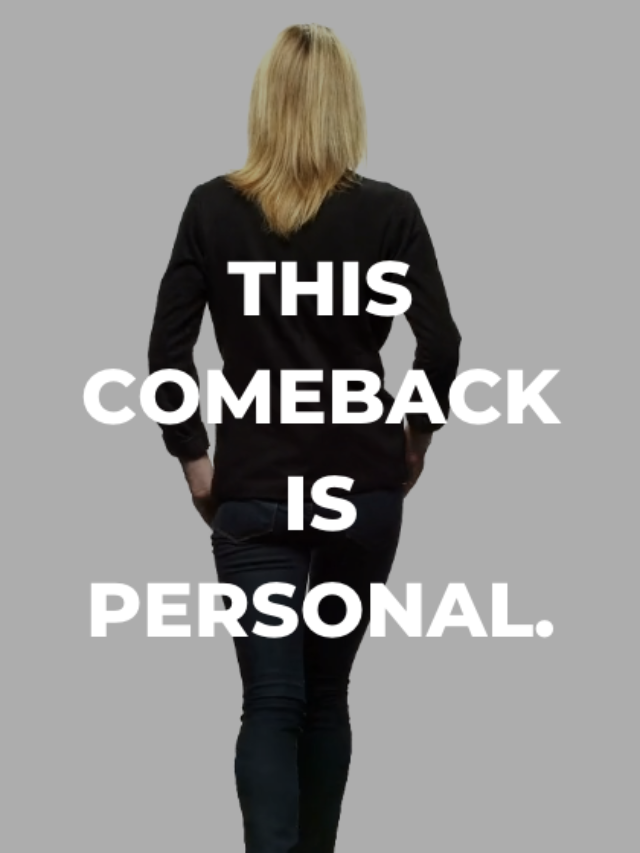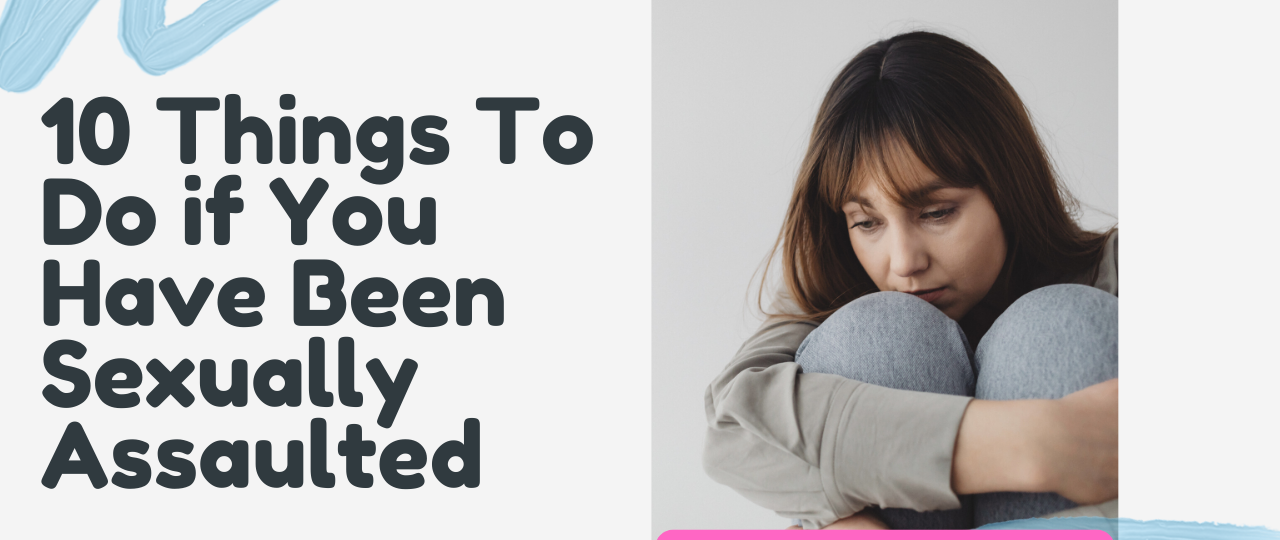I survived sexual assault. I am a sexual assault survivor. It happened July, 2004. I blocked it out as much as I could but every now and then I would get triggered, I eventually wrote a poem about it, I also thought this would be a good article to write for anyone else who has it happened to them. :
It took many years to finally get over it- and I had nobody to talk to because it happened in England. Who believes the women? nobody. And those people walk free like nothing happened.
I am not saying that to gain your sympathy, nor am I trying to start a movement. I am saying it so that if you are a rape survivor and you are reading this article, you will understand that I know what you are going through. I have been there.
In this article, I will give you a list of 10 things that you can do if you have been raped. Some of them will help you in your recovery, some will help you gain justice, and some are just things that I have learned during my own recovery.
However, before I start, there is one thing that I need to say.
It wasn’t your fault.
Write that down and stick it on your wall. Shout it out loud while you are driving in your car. Say it to yourself every morning. Because it’s true. No matter what you did, or how you acted, or what you wore, or where you were, being raped was not your fault. Never let anyone convince you that it was your fault. You are innocent.
Ten Things to Do if You Have Been Raped
This list is in no particular order. Take your time reading it. Some of the things that I suggest might seem impossible right now, so put them aside for later.
1. Get Help
If you have been raped, the single best way that you can help yourself is to get professional help. Friends and family can only do so much. Rape is an extremely traumatic event, and you need a professional who is skilled in treating symptoms such as post-traumatic stress disorder. Even if you can’t make it to a therapist, please call your local rape crisis center. The number is in the front of the phone book. You can speak to them anonymously and they will do everything they can to help you. Don’t try to get through this alone.
2. Start Writing
Keeping a journal will save your sanity and possibly your life. Write everything down. Write down any flashbacks or body memories that you have. Write down how you feel. Write down what you want to say to your rapist. Get it all out. And don’t be afraid to destroy your writing. I burned a lot of the the journals that I wrote when I began my own recovery. You don’t need to hold on to any of the stuff you write, but get it written down. It will save you.
For me, I wrote EVERYTHING down in my yellow journal, names, location, what the environment was, and so on. Years later, recovery finally happened when I became Salty Vixen. My Pen Name is simply “I was a Vixen in a Salty situation”. Yes, I write Erotica, Poetry and more.. Erotica is what helped me get through it- even my therapist at the time said not to stop writing what I am good at. I had so many pent put feelings back then.
3. Treat Yourself
Rape makes you feel like the lowest form of dirt on the planet. You need to find a way to shake off those feelings of worthlessness and be good to yourself. Be kind to yourself, and try to do something that helps you relax and take your mind off the rape and your recovery for a while. Go for a massage, or a long walk. Watch a movie. You’ve been through a lot and you deserve to be treated well. Whatever it takes, try to find something that makes you feel good about yourself.
4. Join a Group
This is not something that you have to do right away, but at some point you might want to consider joining a support group. It really helps to talk to other survivors, especially because you will realize that they are going through a lot of the same things that you are.
There are plenty of “real life” support groups out there, and your therapist or your local rape center can recommend some. However, if you are nervous about meeting people in person, there are also a few online support groups where you can talk to other rape survivors while remaining anonymous. One site that I have used is Malesurvivor. Another good online community is Pandora’s Aquarium, which is mainly for female survivors, although they also welcome male survivors. Both communities allow members to remain anonymous, and they both have very strong security measures in place to ensure the safety of their members and the community. Also for England, Camilla, Queen Consort is part of this charity: Safelives.co.uk.
5. Get the Anger Out
Rape activist Angela Shelton has a great stage show she does where she invites survivors from her audience to come up on stage and beat the crap out of a chair with a baseball bat. The results are amazing (see for yourself at her site Angela Shelton).
When my first flashbacks came, I was raging. I was absolutely furious at what had been done to me. 20 years of pent-up emotion came pouring out in one red-hot torrent of anger. I needed to get that out. So I jumped into my swimming pool, went under the water, and shouted at the top of my voice. I punched and kicked the water. And I stayed in my pool (coming up for air, of course) until the anger was all out of me.
You need to get that anger out. It may still feel buried, but it is there. You’ve got to get it out before it destroys you or the people around you. Find a release. Beat up a chair, or shout names at your rapist, or go for a long run. Do whatever it takes, but find a safe outlet for that rage before it overwhelms you.
6. Start Reading
Recovering from rape is a long and painful process, so you will need all the help and information that you can get. This means that you have a lot of reading to do. Your therapist will give you some reading materials, but here are some resources that worked for me:
Reclaim Your Self is a great article written by Bill Davidson, who has been working with sexual assault victims in British Columbia for 27 years. Reclaim Your Self is the first article I read about rape, and in my opinion it is still the best one out there.
7. Go to the Police
This is a toughie. Rape is a very serious crime, and rapists should be brought to justice. However, speaking to the police can be very traumatic. As someone who has reported his rape to the police, I have a few pointers for you, if you are considering this route.
Trust the Police
Police departments are aware of the trauma of rape, and they want to help you bring your rapist to justice. It may be difficult at first, but it is important to build a trust relationship with the detective who will be working on your case. To that end, don’t be afraid to ask questions or let the police know if you are uncomfortable. They want to help you, so they will try to make the reporting process as painless as possible.
Understand that the Police Have to Do Their Job
Cross examination of rape survivors in court is brutal. Defence lawyers are there to defend their clients, so they will be looking for anything that they can use to discredit the victim’s testimony. This doesn’t make them evil people. They are only doing what their job requires.
Because of this, however, the police will need to question you. They may ask questions that seem invasive, and they will ask you several times to repeat certain key details. This is not because they want to abuse you, but because they need to be absolutely sure that they have the real facts about your rape before they proceed with an investigation or with charges. If you find yourself getting stressed out by their questioning, remember that you are the victim and that you can stop the questioning at any time.
Ownership
I know a few survivors who have gone to the police, and one thing that they all say about the experience is how “out of the picture” they felt after they made their police report. If you do file a complaint, you will notice the same thing. The police will thank you, you will go home, and you may never hear another thing.
This is normal. Once you file a criminal complaint, you “give up” the responsibility for bringing your rapist to justice to the police. Although they will do their best to keep you informed of developments, they will probably proceed with their investigation without your involvement. This can be a very liberating experience, or you can feel a terrifying loss of control. Remember that when you go to the police, you are turning the crime over to them. If this makes you uncomfortable, then it is a good idea to speak to the police before you make your statement (I went in 2 times to speak with them before I filed my actual complaint).
Nothing May Happen
You might go to the police, and they might decide to press charges and your rapist goes to court, and then…he might go free. This happens. The justice system is not perfect, and sometimes it fails to punish criminals. Sometimes it assigns a sentence that seems inadequate to the victim.
The only thing I can recommend is to talk to the police before you do anything. They will do their best to help you understand how the system works, and they will help you set your expectations regarding the court system.
However, the thing to remember is that once you go to the police, what happens to your rapist is out of your hands.
8. Find Sanctuary
Healing from rape is a painful process, and you will need to have a sanctuary; a safe place where you can go when the pain gets really bad. Choose a place where you are surrounded by people who you can trust, and where you know that you will be safe. I used to go to the beach and sit on a bench looking out over the water. Other people go hiking, or go to their church, or even built themselves a little sanctuary at home.
Stay in your sanctuary as long as you need to, but be careful that you don’t start hiding there. Your sanctuary is a place for healing, not a place to escape your recovery.
9. It’s Not Your Fault
This is so important that I want to repeat it. Being raped is not your fault. During your recovery, you will find yourself slipping into self-blame. Always remember that it was not your fault. Again, write this down in big red letters. IT WAS NOT YOUR FAULT.
10. Regain Your Freedom
Rape is a form of mental slavery. Even though you can’t feel them, your rapist bound you in chains of the mind. If you let them, your shame, anger and fear will eventually take control of your life, and your rapist will have won. The number 1 goal of your recovery should be to gain freedom from these emotions, and, in so doing, to gain freedom from your rape.
Set goals for your recovery. Be generous to yourself. If one of your goals is to regain your happiness, then write that down as a goal. If one of your goals is to be able to walk down your street at night, write it down. Write down anything that you dream of doing, that you would be doing if you were not recovering from rape.
Then, with your friends, or with your therapist, or even on your own, begin to plan how you will achieve those goals. It is very important to have goals. They will be the guiding lights that will get you through the dark times ahead in your recovery.
Finally, when you achieve one of your goals, remember to celebrate!
Final Words
I hope that this article helps you with your recovery. Rape is a terrible crime to overcome, but recovery is possible, and you can regain your life and freedom. The trick is to be good to yourself and to be patient. Recovery takes time, and there will be times when you feel like you are making no progress. There will be times when the pain is almost unbearable, and when you feel so absolutely and utterly alone that you can do nothing but cry. I have been there, and if you are there now, I have a message for you:
There is hope. It might not seem that way right now, but there are people who want to help you. You can get through this, and we will help you.
And,
It wasn’t your fault.
XOXO,
Love,
Salty Vixen




















